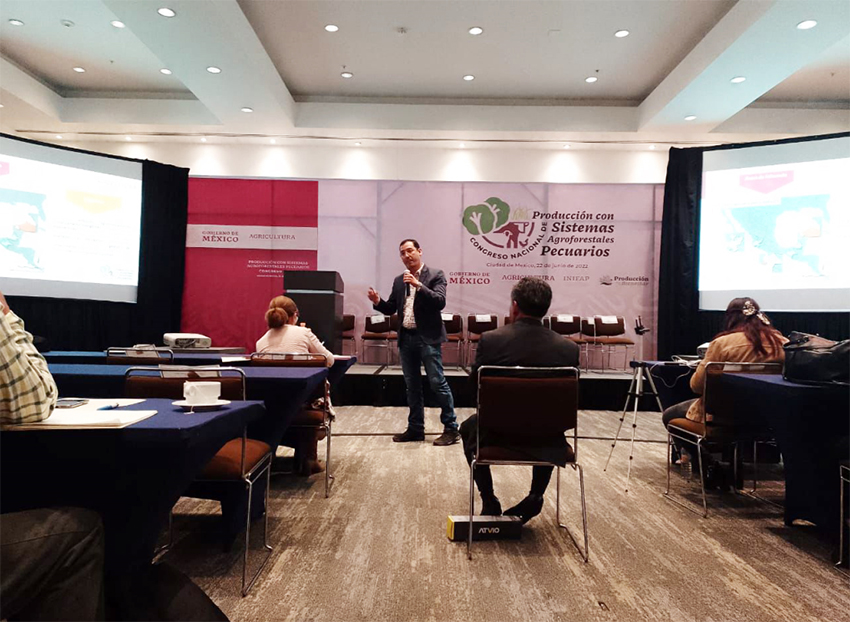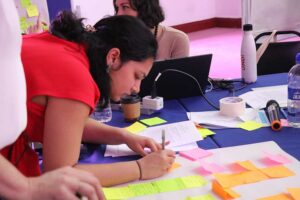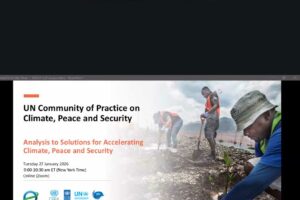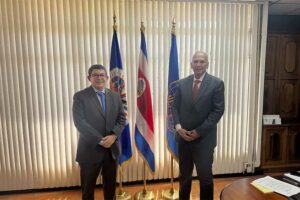BioPaSOS presented value-added experiences in dairy products

- The project participated in the National Congress on Production with Agro-forestry Livestock Systems and Exhibition of Results of the Technical Accompaniment Strategy in Milk, in Mexico.
June 29, 2022. In order to present the main results obtained in the area of transformation, added value and marketing of sustainable livestock products, generated in the states of Jalisco, Chiapas and Campeche, in Mexico, the Biodiversity and Sustainable Agro-forestry-Livestock Landscapes Project, known as BioPaSOS, participated on June 22 in the National Congress on Production with Agro-forestry Livestock Systems and Exhibition of Results of the Technical Accompaniment Strategy in Dairy 2021.
The congress, José Antonio Jiménez, local coordinator of the BioPaSOS project in Chiapas, spoke about the commercialization of products for livestock agro-forestry, presenting the experience of differentiated dairy and meat products that have been generated in the states of Jalisco, Chiapas and Campeche, within the framework of the project.
Jiménez commented that these experiences developed by sustainable livestock producers have allowed them to position their products transformed into heavy cream cheese, quesillo, enchilado cheese, among others, in differentiated markets that have contributed to the sustainability of these small livestock enterprises. However, there is still a need for more promotion and dissemination so that consumers are aware of these products and the benefits they generate for human health and the environment, and thus increase their commercialization.
The event was organized by the Under secretariat for Food Self-Sufficiency of the Ministry of Agriculture and was held in Mexico City. It presented the results of discussions held with different experts on livestock agro-forestry systems in Mexico.
Victor Suárez, undersecretary of Food Self-Sufficiency, on behalf of Rolando Herrera, general director of Food Self-Sufficiency, inaugurated the congress, commenting that at the national level it is necessary to massify production systems with agro-forestry-livestock systems, for which it is necessary to have the participation and linkage of the three levels of government (national, state and municipal). "This is the only way to meet the challenge of the need to produce food in the face of climate change," added Suárez.
The congress was also attended by experts from the Ecology Institute (Instituto de Ecología, A.C., INECOL), the Graduate Schools of Agricultural Sciences (Colegios de Postgraduados en Ciencias Agrícolas (COLPOS), the National Autonomous University of Mexico (UNAM; its Spanish acronym), the Autonomous University of Yucatan (UADY, its Spanish acronym) and the Colima University; as well as technicians from the EAT (Estrategia de Acompañamiento Técnico, Technical Accompaniment Strategy) of milk, non-governmental organizations, livestock producers and representatives of livestock unions from different parts of the country.
Project BioPaSOS is implemented by CATIE (Tropical Agricultural Research and Higher Education Center), with the support of the Inter-American Institute for Cooperation on Agriculture (IICA), in coordination with the National Commission for the Knowledge and Use of Biodiversity (CONABIO, its Spanish acronym) and the Ministry of Agriculture and Rural Development (AGRICULTURA), with funding from the International Climate Initiative (IKI) and together with multiple local partners in their territories of intervention.
More information:
José Antonio Jiménez
Local Coordinator, Chiapas
Biodiversity and Sustainable Agro-silvopastoral Landscapes, BioPaSOS
CATIE
Written by::
Karla Salazar Leiva
Communicator
Information Technology and Communication
CATIE



